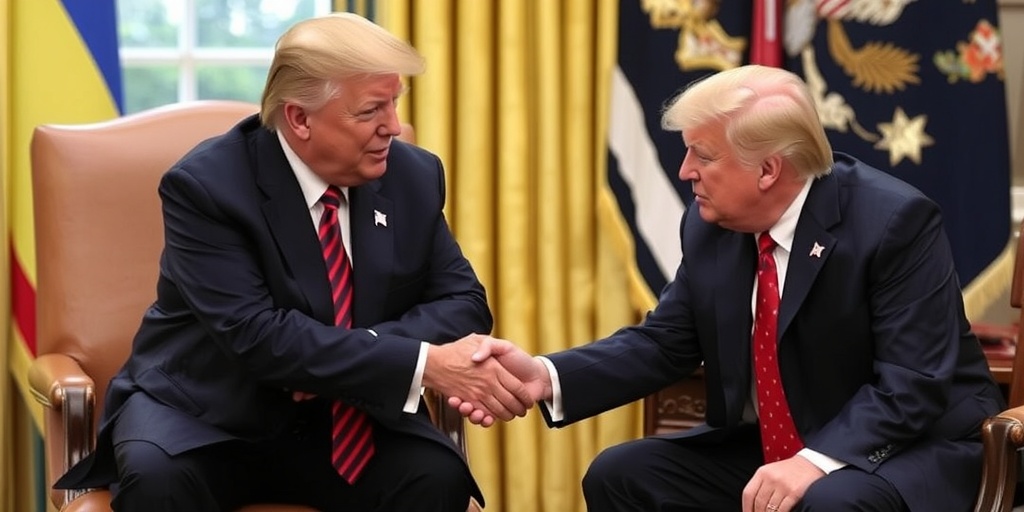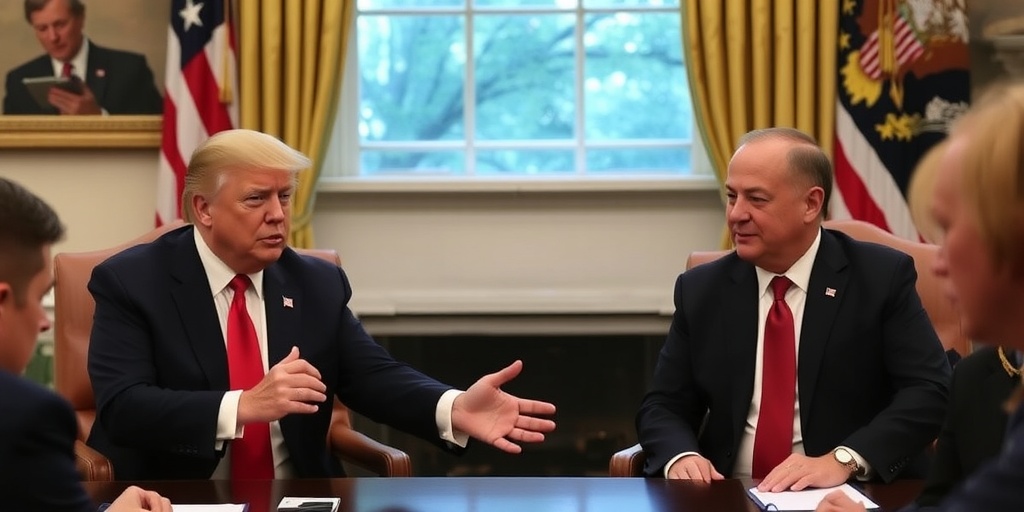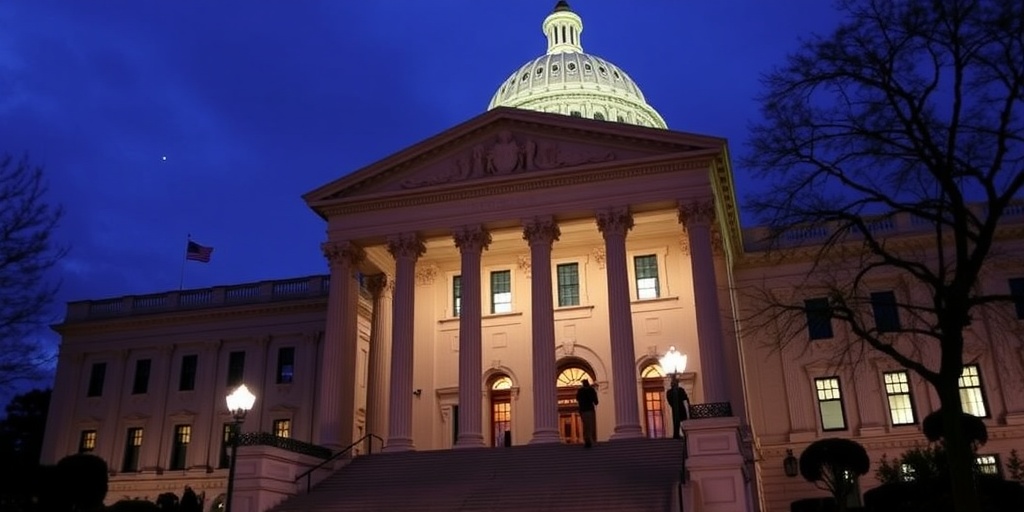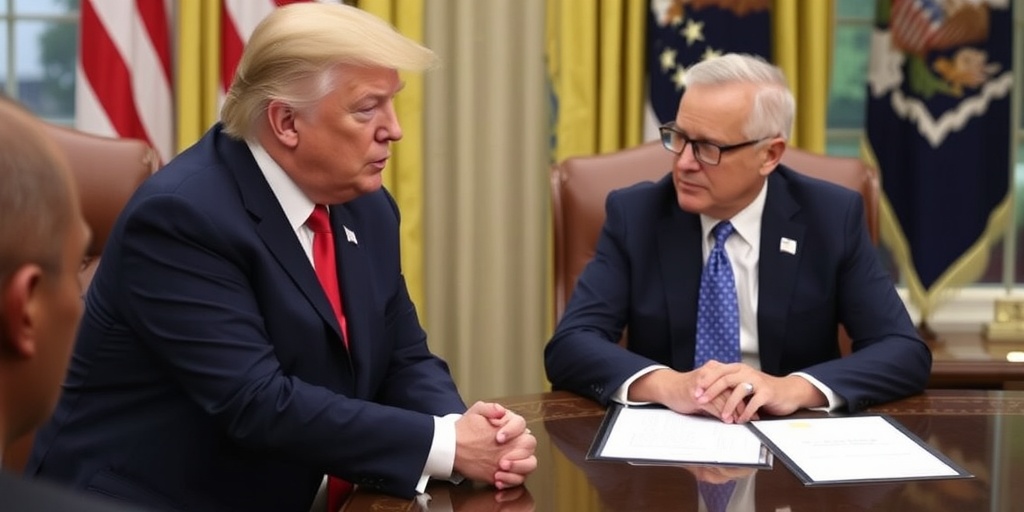Now Reading: Trump Halts Military Aid to Ukraine Following Oval Office Conflict
-
01
Trump Halts Military Aid to Ukraine Following Oval Office Conflict
Trump Halts Military Aid to Ukraine Following Oval Office Conflict

Trump Suspends U.S. Military Aid to Ukraine Amid Tensions with Zelensky
In a controversial move on Monday, President Donald Trump announced a temporary suspension of all U.S. military aid to Ukraine, a decision made just days following an intense confrontation between Trump and Ukrainian President Volodymyr Zelensky at the White House. Senior administration and military officials confirmed that this suspension affects over $1 billion in arms and ammunition that are either in transit or on order.
According to reports, the directive was issued after a series of meetings between Trump and his senior national security team. The officials, who spoke on the condition of anonymity, indicated that the suspension will remain in place until Trump believes Ukraine has shown a sincere commitment to peace negotiations with Russia.
Trump’s decision marks a significant escalation in the already strained relations between Washington and Kyiv at a critical juncture in the ongoing conflict. Analysts suggest that President Vladimir Putin of Russia stands to gain the most from this unilateral decision. Should the suspension persist, it may enable Putin to accelerate territorial advances in Ukraine, potentially emboldening him to delay negotiations, as a protracted dispute between Trump and Zelensky could strengthen Russia’s bargaining position, both on the battlefield and at the negotiating table.
This level of military aid suspension is practically unprecedented in recent American foreign policy. While previous administrations have temporarily paused specific military transfers – for example, President Biden’s decision to halt the delivery of certain munitions to Israel over humanitarian concerns in Gaza – a complete cut-off is much more drastic. It effectively presents Zelensky with a stark ultimatum: comply with terms dictated by Trump for a ceasefire, or face significant military setbacks.
The move places the United States in direct opposition to its principal NATO allies, many of whom have recently pledged to increase their military assistance to Ukraine, siding with Zelensky in his disagreement with the Trump administration. However, these European nations, including France, Britain, and Germany, currently lack the military stockpiles necessary to immediately compensate for the U.S. shortfall.
In addition to halting the delivery of arms, Trump’s directive also affects shipments of military hardware sourced from U.S. Pentagon stockpiles, as part of the Ukraine Security Assistance Initiative. This initiative allows funds only for the purchase of new military equipment from American defense contractors. Questions remain about what Ukraine would need to demonstrate to satisfy Trump and have military aid reinstated.
Trump’s stance appears increasingly aligned with Putin’s narrative regarding the war in Ukraine, as he has made false claims about Ukraine being the aggressor and labeled Zelensky, a democratically elected leader, as a "dictator." In recent remarks, Trump has spoken favorably of Putin, referring to him as "smart" and "cunning," while refraining from labeling him a dictator.
Tensions reached a boiling point last Friday when Trump and Vice President JD Vance publicly criticized Zelensky during a planned signing ceremony at the White House, which was intended to formalize a deal for Ukraine to concede mineral rights in exchange for military aid repayment. Instead, the two U.S. officials berated Zelensky for his perceived lack of gratitude.
When asked about the status of the minerals deal on Monday, Trump expressed uncertainty but referred to it as a "great deal for us.” He indicated that he needed to see more appreciation from Zelensky before negotiations could resume. Following Zelensky’s remarks over the weekend predicting that a peace deal with Russia was still far from reality, Trump criticized him sharply on social media, suggesting such comments would not be tolerated by the U.S. much longer.
Several Cabinet members have echoed Trump’s sentiments, placing blame on Zelensky for the diplomatic fallout and implying that he needs to express contrition for the Oval Office incident. During interviews, Commerce Secretary Howard Lutnick went as far as to describe Zelensky’s demands for reparations and land reclamation from Russia as excessive, urging him to show appreciation for American support.
Following the Oval Office meeting, discussions within the Trump administration began focusing on cutting or reducing military assistance to Ukraine, with some officials speculating that while intelligence sharing was ongoing, it might soon be curtailed as well.
As of late Monday, Trump convened another meeting with his national security team to explore further options regarding assistance to Ukraine. This move comes at a pivotal moment in the Ukraine conflict, coinciding with Trump’s recent declarations indicating that the era of isolating Moscow has ended.
Despite possible repercussions from a halt in U.S. support, Ukrainian officials have noted that they could survive without U.S. aid for several weeks or even months, thanks to their own defense production capabilities and support from European partners. However, they warned that a prolonged suspension would jeopardize access to advanced weaponry and crucial logistical support provided by the U.S., which is vital for maintaining combat effectiveness against Russian forces.
Zelensky vividly underscored the importance of U.S. military aid, stating that American contributions currently account for roughly 30 percent of Ukraine’s defensive capabilities. Historical context highlights that U.S. military assistance faced interruptions last year when Trump influenced Republican lawmakers to withhold funds, resulting in stark consequences for Ukraine as it struggled against Russia’s aerial assaults.
As the situation remains fluid, both the immediate and long-term implications of Trump’s suspension of aid will be monitored closely, as the impact on Ukraine’s military efforts and its ongoing conflict with Russia continues to evolve.
Stay Informed With the Latest & Most Important News
Previous Post
Next Post
-
 01New technology breakthrough has everyone talking right now
01New technology breakthrough has everyone talking right now -
 02Unbelievable life hack everyone needs to try today
02Unbelievable life hack everyone needs to try today -
 03Fascinating discovery found buried deep beneath the ocean
03Fascinating discovery found buried deep beneath the ocean -
 04Man invents genius device that solves everyday problems
04Man invents genius device that solves everyday problems -
 05Shocking discovery that changes what we know forever
05Shocking discovery that changes what we know forever -
 06Internet goes wild over celebrity’s unexpected fashion choice
06Internet goes wild over celebrity’s unexpected fashion choice -
 07Rare animal sighting stuns scientists and wildlife lovers
07Rare animal sighting stuns scientists and wildlife lovers





















